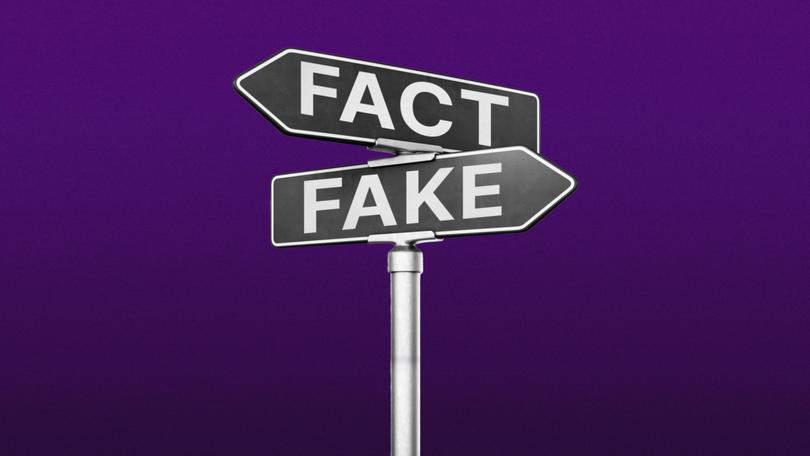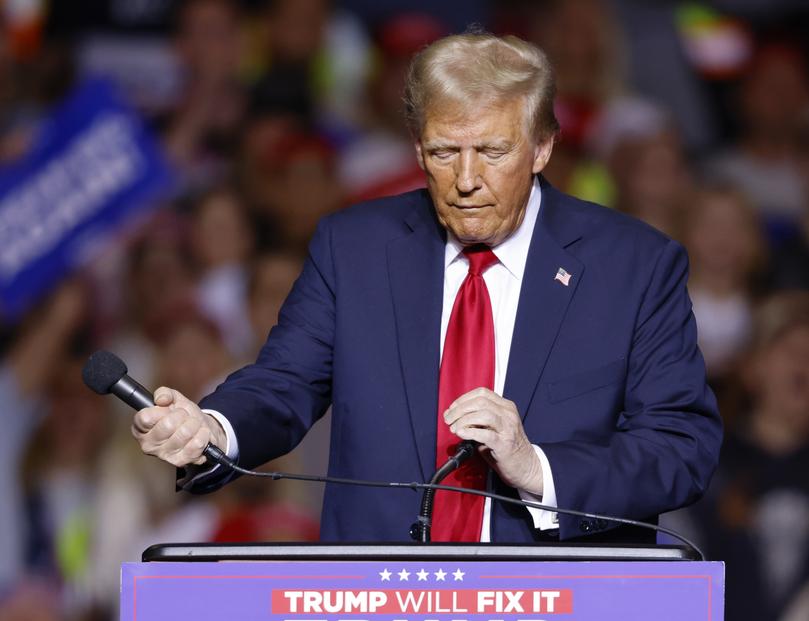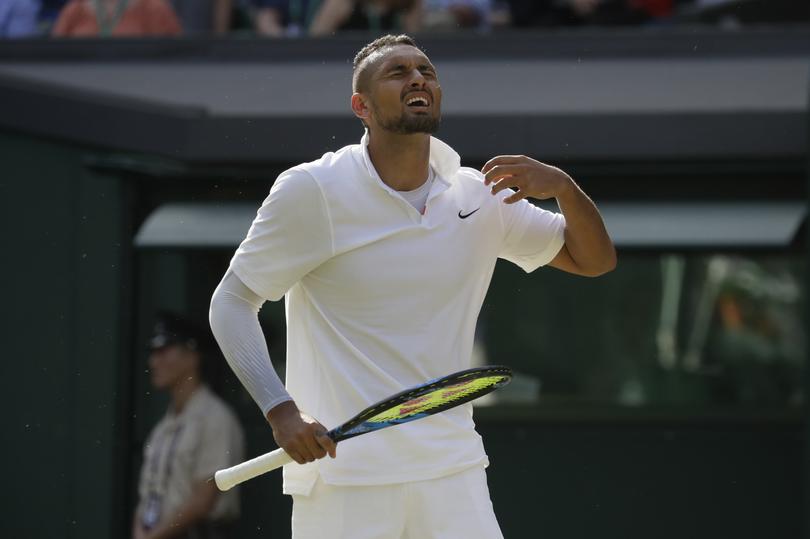KATE EMERY: Conspiracy theories have become the big bad of the internet
KATE EMERY: Forget about cyberbullying, body shaming and romance scamming. Increasingly the biggest danger posed by social media is misinformation.

Forget about cyberbullying, body shaming and romance scamming.
Increasingly the biggest danger posed by social media is misinformation, a scourge that threatens not just individuals but democracy.
Even more terrifying than the idea my children might be indoctrinated by underfed bodies on Instagram, have their understanding of sex warped by pornography or get groomed by a 60-year-old man posing as a 15-year-old Call of Duty fan is the fear they might one day put down their smartphone to inform me that man never walked on the moon, aliens built the pyramids and vaccines kill more lives than they save.
Sign up to The Nightly's newsletters.
Get the first look at the digital newspaper, curated daily stories and breaking headlines delivered to your inbox.
By continuing you agree to our Terms and Privacy Policy.Log the screen time, send the nudes and use those filters that promote unrealistic beauty standards, if you must: just don’t wind up on a Reddit thread at 2am, taking advice on water fluoridation from Robert F Kennedy Jr stans.
I’m being hyperbolic. But only just.
The internet has revolutionised our lives — largely for the better. It has given marginalised people a platform, allowed disenfranchised people to find one another and enabled me personally to watch countless videos of puppies slipping on freshly-washed floors.
I can’t truly be nostalgic for the days when facts came out of a set of leather-bound Encyclopaedia Britannica or an Encarta CD-ROM (kids, ask your parents).
But the scope of the internet’s promise to democratise information has widened to include misinformation.
The threat of conspiracy theories, misinformation and good old-fashioned lies feels more urgent than ever as Australia waits, like a cancer survivor hanging on the results of a new biopsy, to learn whether the United States remains in remission or if the tumour has returned.
“Immigrants are eating pet cats and dogs!” was once the kind of thing you heard from a urine-soaked stranger, shortly before he was escorted into the back of a paddy wagon.
Now it comes out of the mouth of a US presidential candidate.

“They’re controlling the weather!” might once have been the plot for a second-tier James Bond film.
Now it’s shared by a US congresswoman I won’t name because she might blame me if it rains at her place tomorrow.
“Humans didn’t build the pyramids!” is something that should be shouted at you by a stranger handing out crumpled pamphlets from under his anorak.
Now it’s a theory casually advanced by Australia’s tennis bad boy Nick Kyrgios, along with a slew of ideas he seems to feel are still up for debate, including whether the earth is round and the moon landing really happened.
“It’s 2024, and we can’t even all get along,” he said in an interview. “And you think that we built the pyramids? You’re insane. That’s insanity stuff.”
Kyrgios isn’t the problem, he’s a symptom.

Because this stuff is out there. Not “out there” on the fringes of society where it belongs but on Facebook, Reddit and Telegram, waiting to infect internet users lacking the critical thinking skills to differentiate scientific research from the ramblings of a stoned bore six beers deep at a party.
The consequences of allowing conspiracy theories to jump from the fringe to the mainstream are real.
Public trust in the government and the media has been significantly eroded.
The government-appointed inquiry into Australia’s COVID response has warned that loss of trust could hamper the country’s response to any future pandemic.
Meanwhile, US intelligence agencies have warned that the greatest threat to this election is domestic extremists motivated by election-related conspiracy theories.
Cynicism towards politicians and journalists is usually advisable but there’s a big difference between exercising critical thinking about what you’re being told and assuming those with power or influence are part of a vast conspiracy to… what, exactly? (I’ve never been sure what nefarious end “elites” are working towards, however many times I’m accused of being one of them.)
Social media companies have a responsibility to minimise the spread of misinformation on their platforms. But, given the billionaire tech bro in charge of the site formerly known as Twitter is a one-man conspiracy theory machine, I’m not holding my breath.
Parents have a responsibility to teach their children how to identify misinformation, conspiracy theories and AI-generated content. But we’re talking foxes and henhouses, given the number of adults I see every day sharing clearly fake pictures and news stories online with a reverence that suggests it’s a fresh dispatch from Mount Sinai.
There is no silver bullet solution, short of a World War III-induced return to the pre-internet days, when conspiracy theories presumably had to be carved into slabs of slate, so nobody could really be bothered.
Still, depending on the outcome of this week’s US election, that day may be closer than we think.
